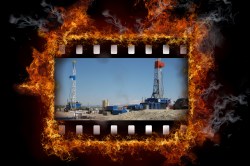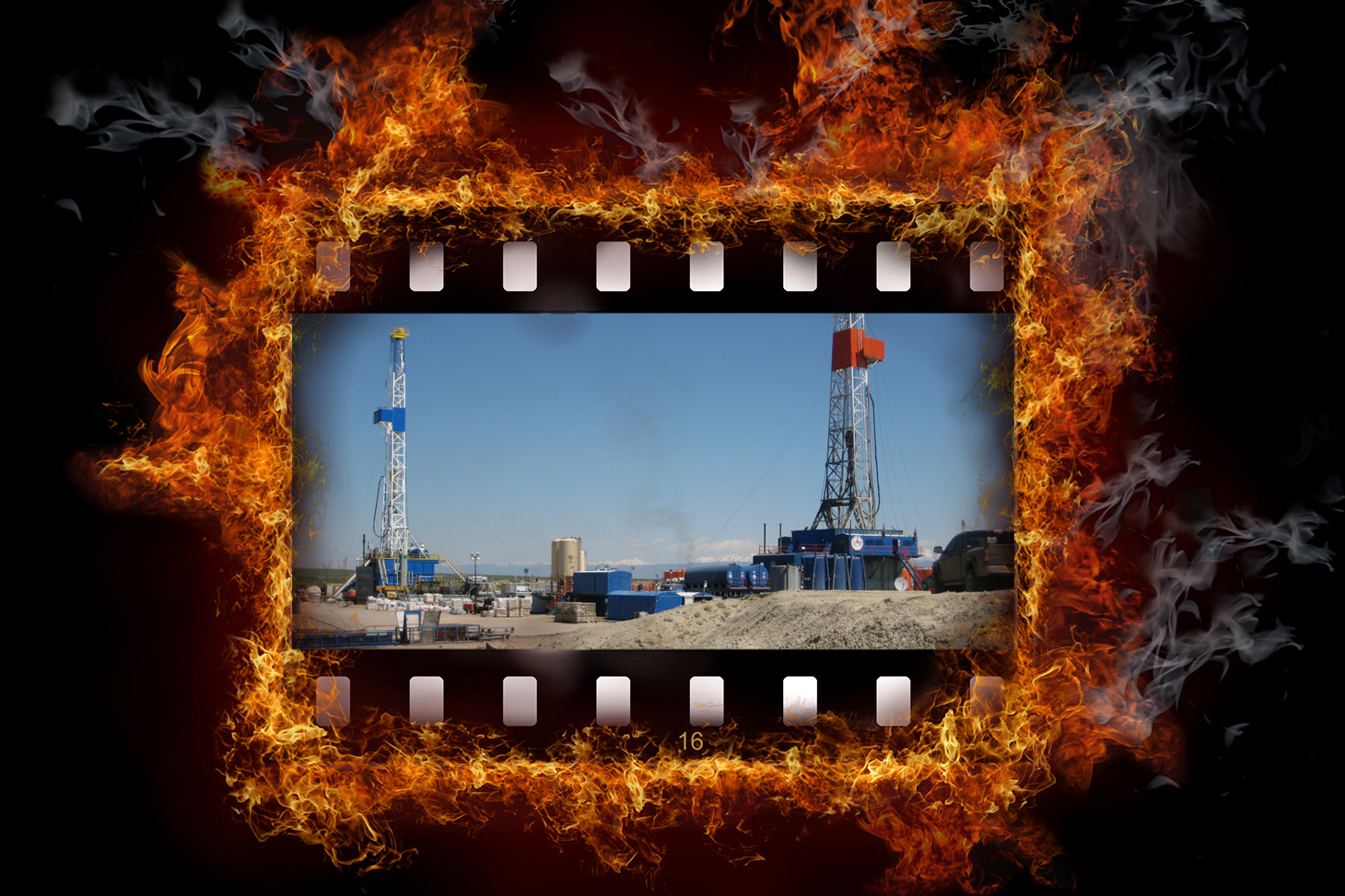
Shutterstock / World ResourcesPut that video camera away or else.
Film a fracker, go to jail?
It could become illegal to document many of the fracking operations in Pennsylvania under an ag-gag bill being considered in the state House.
Ag-gag laws have been introduced or passed in more than a dozen states, aiming to prevent animal-welfare activists from documenting systemic abuses at corporate farms and slaughterhouses. They do this in a variety of ways, mostly by making it illegal to film such abuse; by requiring any such footage be handed over immediately to law enforcement officials (thereby hobbling activists’ ability to document patterns of abuse, rather than one-off instances); and/or by requiring job applicants to reveal any activist affiliations.
But experts warn that Pennsylvania House Bill 683 would go further by also protecting frackers from unwanted scrutiny when they operate on farmland. A fracking spree is underway in the state, which sits atop the natural-gas-rich Marcellus Shale deposit, and much of the fracking is conducted on agricultural lands.
From a report in the Pittsburgh Tribune-Review:
Ross Pifer, director of the Agricultural Law Resource and Reference Center at Penn State University’s Dickinson School of Law, said hydraulic fracturing operations could be protected under the bill because gas companies often lease land from farmers.
“If you view it expansively, you’d have to view it as: Anything that takes place on that land (is protected),” Pifer said.
Melissa Troutman, outreach coordinator at Mountain Watershed Association, which investigates and records fracking activity, said the law would open the door for gas companies to hide activities legally.
“If it passes, what’s next? No documenting commercial or recreational activity?” Troutman said. “Right now it’s legal to photograph industrial operations on public lands. Will that be illegal next?
“If you’re not doing anything wrong, there’s nothing to hide. So why is there a need for this bill?”



